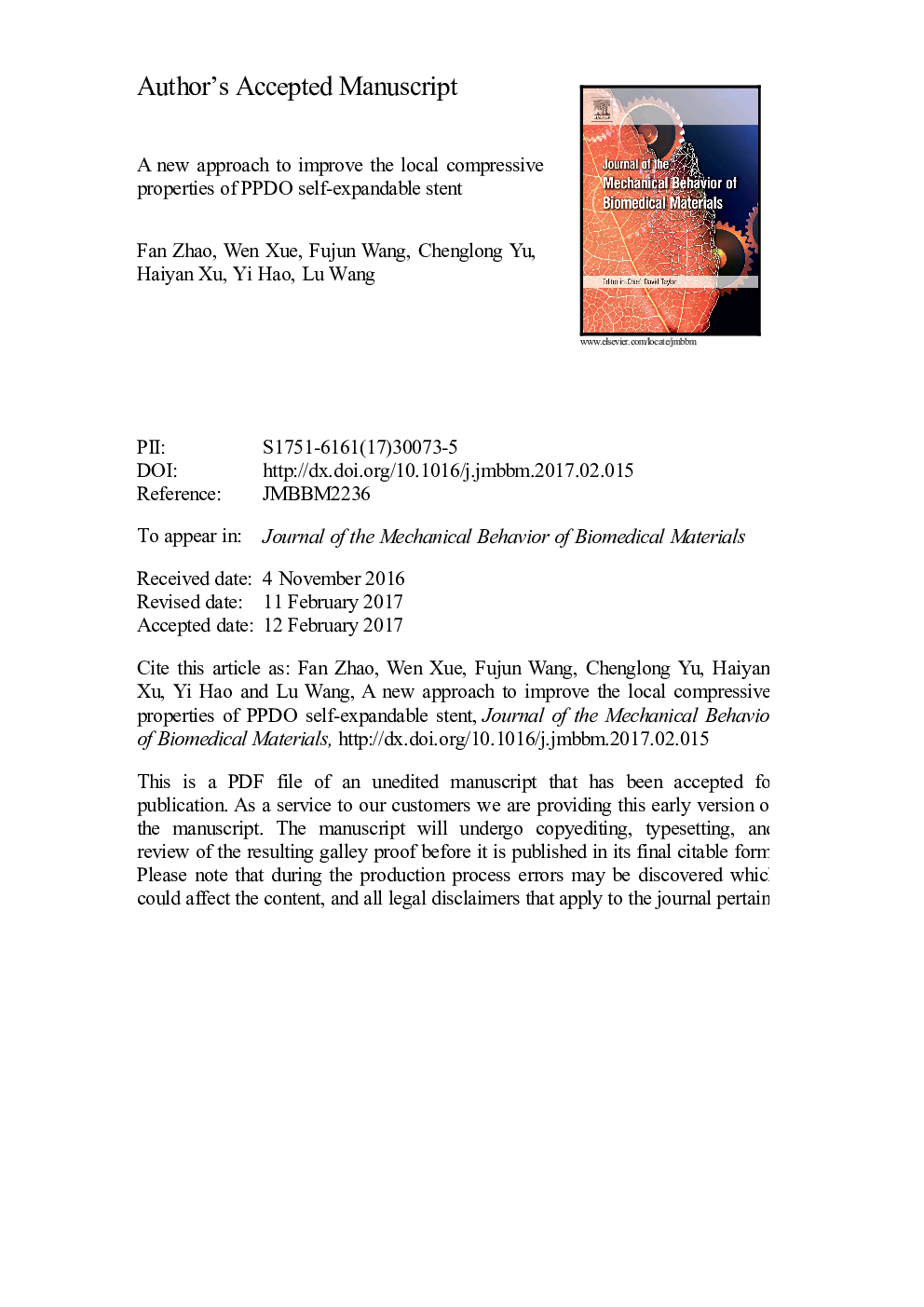| Article ID | Journal | Published Year | Pages | File Type |
|---|---|---|---|---|
| 5020741 | Journal of the Mechanical Behavior of Biomedical Materials | 2017 | 54 Pages |
Abstract
The radial performance of bioabsorbable polymeric intravascular stents is extremely important in assessing the efficiency of these devices in expanding narrow lumen, reducing stent recoil, and recovering to their original states after suffering from pulsating pressure. However, these stents remain inferior to metallic stents. Several thermal treatment conditions (60 °C, 80 °C, and 100 °C for 1 h) were investigated to improve the characteristics of poly(p-dioxanone) (PPDO) self-expandable stents. The local compressive force, stiffness, and viscoelasticity of these stents were also evaluated. Wide-angle X-ray diffraction and different scanning calorimetry measurements were performed to evaluate the recrystalline and thermodynamic changes of molecular chains. The declining conformer entropy of PPDO monofilaments was examined via energy analysis. The untreated stents had compressive modules of 514.80±70.59 mN/mm, which was much higher than those of 80 °C and 100 °C treated stents (332.35±66.08 mN/mm and 394.31±64.71 mN/mm, respectively). Nevertheless, 100 °C annealing stents had less stress relaxation and prior elastic recovery rate of 82.32±3.43 mN and 92.55±1.61%, respectively, showing a much better shape stability than untreated stents (139.51±16.67 mN and 86.18±3.57%, respectively). These findings present important clinical implications in the stent manufacturing process and warrant further study to develop new bioabsorbable stents with outstanding clinical efficacy.
Related Topics
Physical Sciences and Engineering
Engineering
Biomedical Engineering
Authors
Fan Zhao, Wen Xue, Fujun Wang, Chenglong Yu, Haiyan Xu, Yi Hao, Lu Wang,
